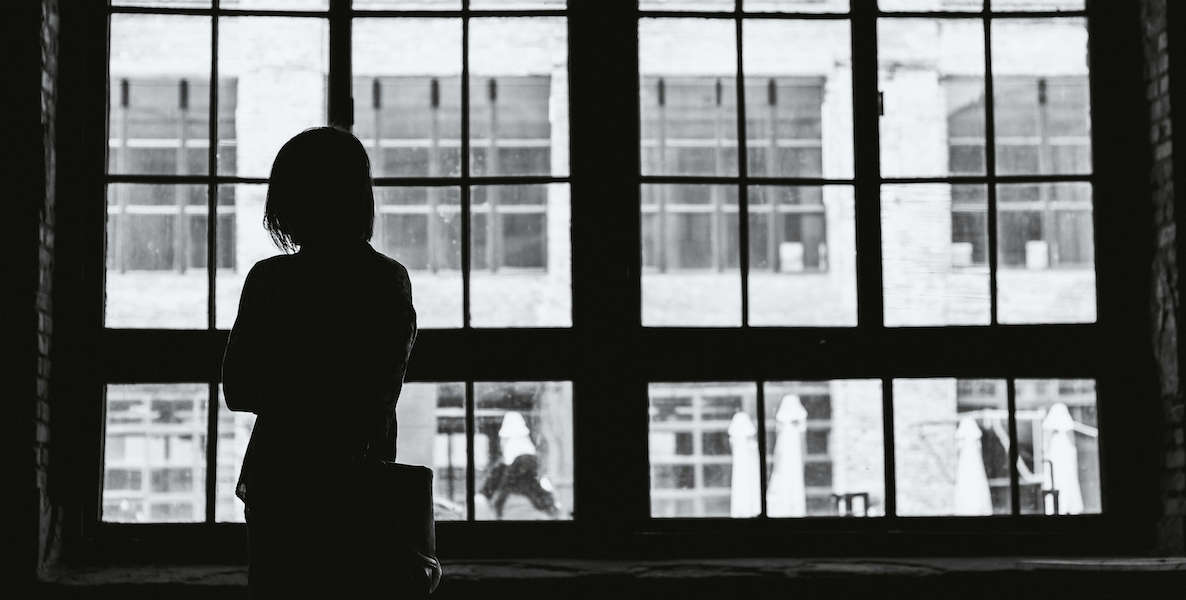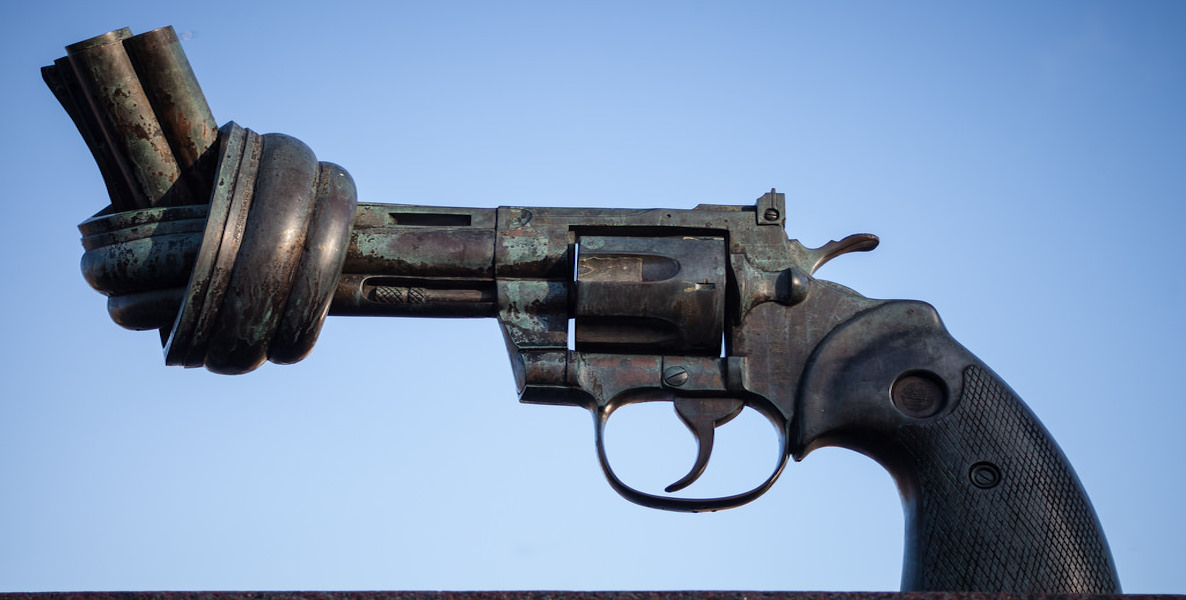![]() A couple months ago, as the pandemic shut down much of Europe, social service agencies braced for a frightening ripple effect of being forced to stay home with family: A potential increase in domestic violence, with fewer ways and opportunities to get help.
A couple months ago, as the pandemic shut down much of Europe, social service agencies braced for a frightening ripple effect of being forced to stay home with family: A potential increase in domestic violence, with fewer ways and opportunities to get help.
That fear was borne out, when a 78-year-old woman was murdered in March by her husband in the Canary Islands. In response, the Spanish community quickly mobilized a group of people who have been essential and open for business, and who are ubiquitous throughout the country: Pharmacists.
Now, victims of abuse who might not be able to call for help can surreptitiously seek relief by walking up to a pharmacy counter and asking for a “Mascarilla-19 face mask.” The pharmacist can then call for help, or offer other assistance.
![]() The program has since spread throughout Spain, and into France, where by the end of March officials say they saw a more than 30 percent spike in domestic violence cases, including two murders. There, asking for a “masque-19” triggers a pharmacist to call for help.
The program has since spread throughout Spain, and into France, where by the end of March officials say they saw a more than 30 percent spike in domestic violence cases, including two murders. There, asking for a “masque-19” triggers a pharmacist to call for help.
And help is available: The French government opened pop-up counseling centers in 20 supermarkets, is paying for 20,000 hotel room nights for domestic abuse survivors, and increased funding for anti-abuse organizations by €1 million to meet the increased need.
In Philly, meanwhile, the domestic violence shelters are full, emergency funding is running out—and no code words or pop-up counseling is available. The need, though, is there.
In the entire city of Philadelphia, there are two 100-bed shelters for domestic violence survivors. Those were full before the pandemic started, and they are full now. More than 600 people looking for shelter were turned away from January through March—and the organization has turned away as many as 14,600 in a year.
“One of the dynamics of abuse is isolation and disconnection from social networks,” says Jeannine L. Lisitski, executive director/president of Women Against Abuse (WAA). “This forced quarantine adds to that whole dynamic. We know there’s a lot of abuse going on, but women can’t get out to get help.”
Calls to police, legal services and abuse hotlines are more or less on par with this time last year. But nobody thinks that means the number, or intensity, of domestic abuse incidents has remained the same.
Lisitski says that calls coming through to the city’s Domestic Violence Hotline illustrate what’s likely happening across the city: “People are calling under duress, making quick calls, hanging up suddenly,” she says. “They are reporting more sexual assaults and abuse and coercion—they’re acquiescing because they want to diffuse the situation, because they are stuck in a home that’s violent.”
![]() Azucena Ugarte, director of Philly’s Office of Domestic Violence Strategies, says the pandemic has heightened an already heightened situation for many women. They may not be able to call for help because they don’t have enough privacy. But they may also decide harm reduction is the best they can do because public transportation is limited, courts have limited hours, money is tight, childcare is nonexistent and family members who might have been an option before could be put at risk of infection if they open their homes.
Azucena Ugarte, director of Philly’s Office of Domestic Violence Strategies, says the pandemic has heightened an already heightened situation for many women. They may not be able to call for help because they don’t have enough privacy. But they may also decide harm reduction is the best they can do because public transportation is limited, courts have limited hours, money is tight, childcare is nonexistent and family members who might have been an option before could be put at risk of infection if they open their homes.
Even the incidental ways in which survivors might seek help are disrupted these days; doctors, schools, social services, even hairdressers can be a lifeline, offering advice or connections.
But the truth is, like with so much else, the pandemic has starkly highlighted something that has long been the case in Philly: Even in ordinary times, there is not enough help to go around for victims of domestic violence, a population whose numbers are not easily counted.
Every year, according to WAA, the police respond to more than 100,000 911 domestic violence calls; about 12,000 Protection From Abuse petitions are filed; 2,000 emergency room visits are due to relationship assaults.
Last year, Ugarte says the City’s domestic abuse hotline—operated jointly by Women Against Abuse; Women in Transition; Congreso de Latinos Unidos; and Lutheran Settlement House—answered 13,329 calls. (Some of those may be repeat callers.)
In the entire city of Philadelphia, there are two 100-bed shelters for domestic violence survivors, both run by Women Against Abuse. Those were full before the pandemic started, and Lisitski says they are full now—with each family staying in a separate room, eating grab-n-go meals and getting case management and therapy over the phone. She says the hotline turned away more than 600 requests for shelter in March—and the organization on average turns away 11,400 in a year.
There are other piecemeal programs, too. Women in Transition and Lutheran Settlement House have an emergency placement program that can give four families at a time five days in a hotel room until they can move into a shelter, up to about 40 families per year, Ugarte says.
![]() That funding runs from the start of the fiscal year in July until it runs out. Congreso has a rent subsidy program, and the Pennsylvania Coalition Against Domestic Violence has one-time relocation funds available for Philly families—again, while they have funds.
That funding runs from the start of the fiscal year in July until it runs out. Congreso has a rent subsidy program, and the Pennsylvania Coalition Against Domestic Violence has one-time relocation funds available for Philly families—again, while they have funds.
None of these programs, even combined, is up to the task of ensuring the safety of domestic violence survivors in ordinary times. In these extraordinary times, they fall far short.
Legal advocates have worked to keep the courts open for filing emergency protections from abuse orders, which the Sheriff’s Office is now delivering during the pandemic. And there is some more flexibility in how state funds are being used—for hotel rooms, for example.
Still, Philly has not pivoted to the types of creative support other cities around the country and world are using to reach survivors during the Covid-19 lockdown—though both Lisitski and Ugarte say any of the European solutions could be effective.
“One of the dynamics of abuse is isolation and disconnection from social networks,” says Jeannine Lisitski, executive director of Women Against Abuse (WAA). “This forced quarantine adds to that whole dynamic. We know there’s a lot of abuse going on, but women can’t get out to get help.”
The City has started or is considering hoteling people who are most vulnerable, like the homeless or those over 65 in group living situations. But that does not yet extend to domestic abuse survivors, unlike in France, Italy or Los Angeles, where Rihanna and Twitter CEO Jack Dorsey donated $4.2 million to L.A.’s Covid-19 Crisis Fund to provide 10 weeks of shelter, food and counseling for 90 families per week.
And while many services have gone online, including WAA’s domestic abuse training for students and third party professionals, even technology has fallen short of where Lisitksy and Ugarte say they would like to be.
In Italy, the country adapted an anti-bullying app called “YouPol” that allows women to alert the police they need assistance without placing a phone call; this is reminiscent of Pennsylvania’s Safe2Say, which lets students anonymously send tips about potential school shootings to a crisis center run by the Attorney General’s office—though whether that could be adapted is unclear.
Lisitski says WAA has been planning for years to launch a pilot of a chat app that would allow survivors to talk with counselors via text that automatically disappears—a silent way to seek help that she notes might be useful in quarantine. Operating that program, though, is more expensive and labor-intensive than the hotline, and the organization has not had the funds to launch it yet. (And, tech has its own risks.)
Meanwhile, the City is distributing flyers with the hotline’s phone number (1-866-723-3014) to every food distribution site, and Lisitski says she hopes to put signs up in grocery stores, too—possibly in partnership with Mural Arts, which has been painting lines on the floors to mark six-foot separation.
And Lisitski notes that the City is better situated in some ways than it has been because of the Domestic Violence Law Enforcement Committee and Shared Safety, a citywide program that embeds domestic violence screening and prevention into 17 city and social service agencies, to dramatically increase the outreach to survivors. (Shared Safety, the first of its kind in a big city, won Wharton’s Lipman Family Prize for Social Justice in 2017.) That program may expand even more, to incorporate community hubs like hairdressers and barbershops.
Importantly, Shared Safety also includes services to and for abusers—something Ugarte notes is often missing from the conversation here, but that needs to be said.
“We need to pay attention to the person doing the abuse, and what we can do to keep the person accountable to their behavior, provide support if they’re willing to change, and how to do that in a safe way,” Ugarte says. “Domestic violence will stop when the person doing the abuse stops doing the abuse.”
Corrections: An earlier version of this story misstated the name of Women Against Abuse’s executive director. It is Jeannine L. Lisitski.
Photo courtesy Alex Ivashenko / Unsplash




